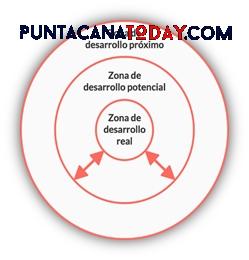
Punta Cana, RD.- All work teams in any company and in any country share the same characteristic: they are made up of human beings who are different from each other. The efficiency of any work team is a variable dependent on the manifestation or not of the behaviors of its members that are congruent with the achievement of the objectives that each team sets for itself.
One of the great challenges of every leader is, without a doubt, to make those he leads volitionally manifest these expected and desired behaviors in a sustainable way and so that they can develop personally and professionally during the journey towards achieving business objectives.
The leader, who has the vision of what type of behaviors are consistent with achieving business objectives, must know if those led have the cognitive (learning), emotional and motivational resources necessary to manifest them.
According to Lev Vygotsky’s Learning Theory (Russian psychologist and prominent theorist of developmental psychology), development follows learning and not vice versa. That is, for there to be development, people have to learn first. Vygotsky created three major zones of development through learning:
- The real development zone which represents the current abilities of the person (led).
- Next development area where the person (led) is in the training process.
- The potential development zone which would be the level that the person (led) can reach with the help of another person (the leader).

It is precisely the task of a team leader to detect the real development zone of each of his team leaders in order to then develop a development plan through learning and achieve their transformation.
Starting from the fact that each leader is a different human being, it is worth noting that the leader must design a personalized development program, which he must supervise and constantly monitor, for each of his followers, paying careful attention to every detail or necessary action for its development, all these are characteristic features of micromanagement, this allows you to know what the aforementioned resources are that each member of your team possesses in order to create growth and transformation programs that encourage, inspire and motivate employees to innovate and create changes that will help develop these resources and grow personally and professionally, aspects that identify transformational leadership.
Transformational micromanagement is characterized by:
1-Personalized contact of the leader with each leader.
2-Deep knowledge of the leader of the cognitive, emotional and motivational resources of each of those led.
3-Design of personalized professional development strategies for each leader.
4-Detailed observation and exhaustive monitoring of the transformation process of the leader.
5-Personalized knowledge of the motivational reinforcers of each of your leaders.
6-Attention to every detail of the transformation process of each employee in particular.
If there is something that the leader cannot generalize and delegate, it is the development and growth strategies of each leader, since it must be ad-hoc, which will require the support and supervision of the leader at all times of this transformational process.
The greater the leader’s knowledge of each of his or her followers, the greater the degree of effectiveness of the relationship based on trust, respect, inspiration, commitment and fidelity to the development process in terms of personal and professional growth of both the leader and the person being led.
By Osvaldo Torres special for
